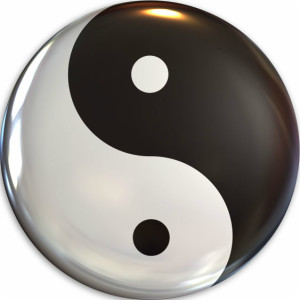
Eastern medicine, called Traditional Chinese Veterinary Medicine (TCVM), is relatively new to the Western world. However, in China, TCVM has helped animals for thousands of years.
You’ve probably heard of TCM (Traditional Chinese Medicine) for humans. TCVM is an adaptation of the TCM (Traditional Chinese Medicine) used for animals.
Eastern medicine (TCM and TCVM) has been a medical mainstay for thousands of years in the Eastern hemisphere. However, Eastern medicine has recently gained popularity in the United States.

Whether using it as the sole treatment or in combination with Western medicine, Eastern methods certainly have their place in the medical world.
What is Eastern Medicine?
Eastern medicine (TCVM) is rooted in Taoism. Taoism’s fundamentals revolve around balance: balance within the body, balance with others, balance with nutrition, and balance with nature.
Five fundamental branches achieve this balance:
- Acupuncture
- Herbal Therapy
- Food Therapy
- Tui-Na
- Qi-Gong.
Veterinary medicine uses four branches to help our patients heal and maintain balance. Qi-Gong is a form of exercise not applied in the veterinary field.
To understand the basics of Chinese medicine, you must first understand some basics from the Daoist worldview. The Daoist worldview sees the body as a microcosm of the larger surrounding universe. In other words, cosmic laws and forces governing the external world also govern the body’s internal environment.
For example, life energy, or “Qi,” is an innate force of the universe. Likewise, “Qi” is also a fundamental body force, driving the body’s every action and transformation.
Another example is the Yin-Yang theory. This theory is central to Daoist philosophy and very prominent in Chinese Medicine. It describes how opposing forces of the universe transform each other and characterize physiological function and disease.
The Ancient Chinese also observed yearly cycles through the five seasons (spring, summer, late summer, autumn, and winter), corresponding to the Five Elements (Wood, Fire, Earth, Metal, and Water). Like our Earth cycles through its five seasons, the body also passes through the same five phases in its life cycle.
How Will Eastern Medicine Help My Pet?
Eastern medicine, or Traditional Chinese Veterinary Medicine (TCVM), offers a holistic approach to pet health and wellness.
Here’s how TCVM can benefit your pet:
- Balancing Energy (Qi) Flow: TCVM focuses on balancing energy flow, or Qi, throughout your pet’s body. By identifying and addressing imbalances in Qi, TCVM aims to restore harmony and promote optimal health.
- Herbal Medicine: Herbal remedies are significant in Eastern medicine for pets. Herbal formulas are tailored to address specific health concerns, such as arthritis, digestive issues, skin conditions, and anxiety. These natural remedies can support your pet’s overall well-being and complement conventional treatments.
- Acupuncture: Acupuncture involves the insertion of thin needles into specific points on your pet’s body to stimulate energy flow and promote healing. This ancient practice can help alleviate pain, reduce inflammation, improve circulation, and enhance the body’s ability to heal itself.
- Food Therapy: TCVM emphasizes the importance of nutrition in maintaining health and preventing disease. Food therapy involves selecting appropriate foods and supplements based on your pet’s individual constitution and health needs to support their overall vitality and longevity.
- Tui-na Massage: Tui-na is a Chinese massage therapy that involves applying pressure and manipulation techniques to specific points on your pet’s body. This therapeutic approach can help alleviate muscle tension, improve circulation, and promote relaxation.
- TCVM Diagnosis: Eastern medicine practitioners use unique diagnostic methods, such as tongue and pulse examination, to assess your pet’s overall health and identify underlying imbalances. This holistic approach comprehensively understands your pet’s condition and guides personalized treatment plans.
- Preventive Care: TCVM emphasizes the importance of preventive care and wellness maintenance. By addressing imbalances in your pet’s body before they manifest as illness, Eastern medicine can help prevent health issues and support your pet’s long-term health and vitality.
TCVM offers a holistic and integrative approach to pet care. It focuses on restoring balance, promoting natural healing, and enhancing overall well-being. By incorporating Eastern medicine into your pet’s healthcare regimen, you can support its physical, mental, and emotional health for a happier and healthier life.
Interested in learning how Traditional Chinese Medicine can help your pet?
Schedule Now!
People Also Ask:
What is Eastern medicine for pets, and how does it differ from conventional veterinary care?
Eastern medicine for pets encompasses holistic healing modalities rooted in ancient Eastern philosophies, such as traditional Chinese medicine (TCM) and Ayurveda. Unlike conventional veterinary care, which primarily focuses on treating symptoms, TCVM takes a holistic approach, aiming to balance the body’s energy and promote overall wellness.
What types of treatments are included in Eastern medicine for pets?
Eastern medicine for pets includes a variety of treatments, such as acupuncture, herbal therapy, food therapy, massage (Tui-Na), and food therapy. These modalities work together to address imbalances in the body, restore harmony, and support the body’s natural healing processes.
What conditions can TCVM help treat in pets?
TCVM can benefit a wide range of conditions in pets, including arthritis, chronic pain, digestive disorders, skin issues, respiratory problems, neurological conditions, and behavioral issues. It can also support pets undergoing cancer treatment and provide palliative care for pets with terminal illnesses.
Is Eastern medicine safe for pets?
Yes, Eastern medicine modalities such as acupuncture, herbal therapy, and massage are generally safe for pets when administered by a qualified and experienced practitioner. These treatments have minimal side effects and can be used safely alongside conventional veterinary care.
How do you determine which TCVM treatments are right for my pet?
Our experienced veterinarians will comprehensively evaluate your pet’s health history, current symptoms, and overall condition to determine the most appropriate TCVM treatments. We consider your pet’s individual needs, preferences, and treatment goals to develop a personalized treatment plan tailored to their unique requirements.
Can Eastern medicine be used alongside conventional veterinary treatments?
Yes, Eastern medicine can complement conventional veterinary treatments and is often integrated into comprehensive pet treatment plans. By combining Eastern and Western modalities, we can provide a holistic approach to addressing your pet’s health needs, optimizing treatment outcomes, and enhancing their overall quality of life.





